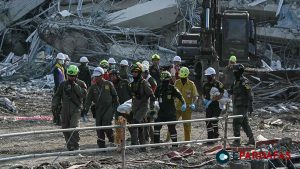
Flash floods kill at least 50 in Afghanistan

At least 50 people have died in flash floods triggered by heavy rains in central Afghanistan, officials have said.
Authorities in the Ghor province say a number of others are missing, as people ran to safety on higher grounds just minutes before the floodwaters hit.
They say the floods have also killed thousands of cattle, destroyed some 2,000 houses, and damaged many more.
The fresh bout of heavy rain follows widespread flooding in in northern and central areas this week.
Officials say that in the provincial capital, Firozkoh, around 2,000 shops are under water and most roads leading to it have been cut off.
A resident there said “a huge and horrible flood” washed away everything, as he and his family raced to safety after being alerted by officials and from mosque loudspeakers.
Zahir Zahid told the AFP news agency: “I watched the flood destroy my house with my own eyes. Women and children, everyone was crying.”
The province’s disaster management department declared an “emergency situation” and appealed for shelter, food and water.
The spokesperson for provincial governor Abdul Wahid Hamas said dozens of people were missing.
More than 300 people died last week, according to UN and Taliban officials, after unusually heavy rains devastated scores of villages in the north.
This has left much of the farmland covered in thick mud in a country where 80% of the more than 40 million people depend on agriculture.
UN agencies have warned that the number of people who have died in the latest floods may rise as rescue efforts have been severely hampered without access to the affected areas.
The heavy rain has come after the country experienced a prolonged period of drought earlier in the year.
Climate analysts say Afghanistan – already war-ravaged and alienated from the world since the Taliban took power in 2021 – is one of the least prepared countries to tackle the impacts of climate change.
Afghanistan’s meteorological department has warned of more rain and possible floods across all of the country’s provinces.
The worst-hit in the north, Baghlan, still remains inaccessible by trucks, according to the UN’s World Food Programme.
The UN says survivors displaced in earlier flooding have been left with no home, no land, and no source of livelihood.
BBC
- PM Oli Hails Thailand Visit and BIMSTEC Summit Participation as Fruitful and Impactful
- PM Oli Vows to Deepen Nepal-India Relations Following Productive Talks with Indian Counterpart
- Kathmandu Chokes on Toxic Air as Health Concerns Mount
- Myanmar Earthquake Death Toll Surpasses 3,300, UN Calls for Global Support












Comments